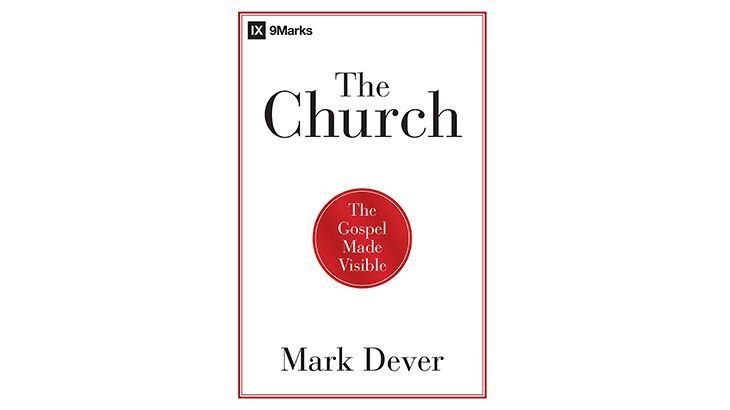Book Recommendation: The Church: The Gospel Made Visible

Editor's note: This is the first in a series of book recommendations from our Pastoral Body to the church family, so you can not only see what we've been reading but discern if it is a good option for your own reading. Enjoy!
Who's the author?
Mark Dever has been the senior pastor of Capitol Hill Baptist Church in Washington, D.C., for more than 25 years. He founded and leads 9Marks, a ministry dedicated to providing resources for healthy churches. His many books, including Nine Marks of a Healthy Church , generally focus on ecclesiology, the doctrine of the church.
What's it about?
The Church: The Gospel Made Visible grew out of a chapter Dever wrote in a systematic theology book, A Theology for the Church (B&H Academic, 2007). Dever hopes that The Church will be a popular primer on the doctrine of the church for all believers, but especially for Baptists. He observes that many evangelicals believe that the Bible doesn't have much to say about how the church should gather and do life together. He argues that the Bible does, in fact, teach believers about how the church should assemble for corporate worship and how to organize their corporate life together. He intends to introduce the reader to what the Bible says about the nature and purpose of the Church. The book is divided into three parts.
In Part 1, Dever explains what the Scriptures teach about the Church, discussing its nature, marks, membership, polity, purpose, and so forth. Using the Nicene Creed as a general guide, he argues through the Scriptures that the church is one, holy, universal (or catholic), and apostolic. He then argues for the two marks that define a local church—the right preaching of the Word and the proper administration of ordinances, i.e., baptism (by immersion) and the Lord's Supper. Dever makes the case from Scripture for two offices in the local church, plural elder oversight, and congregational responsibility. He summarizes that the purpose of the local church is to worship God, edify one another, and reach the world with the gospel.
Dever provides a brief historical survey on the doctrine of the church in Part 2, looking at historical views of the idea of the church and the ordinances and various approaches to church organization. This section touches on the rise of denominations, baptism, the Lord's Supper, membership, church covenants, polity, and church discipline.
In Part 3, Dever discusses how these doctrines practically work themselves out in a local congregation. He first argues that a biblically faithful church is a Protestant church, where the Word is preached, and the two ordinances (baptism and the Lord's Supper) are regularly observed. Second, a biblically faithful church is a gathered church made up of regenerate members who submit to the teachings and discipline of that local church. He then argues that a biblically faithful church is a congregational church. He fleshes this out as a local church that is elder-led and congregationally governed. Among the elders, there could be one elder in a senior position responsible for the ministry of the Word and who provides leadership to the church's vision and direction. Dever then discusses the importance of baptism. Dever strongly believes that only baptized believers should participate in the Lord's Supper.
Should you read it?
Dever wrote The Church for Baptists and other believers who hold the Bible alone as our final authority. On that front, he doesn't disappoint. The book is written in non-technical language, making it easy to read and follow his arguments.
Dever also does a good job demonstrating how proper theology leads to the right practice. He starts by taking us through Scriptures on what the Bible teaches on the doctrine of the church. He then comes up with beliefs or teachings based on the Word of God. We should always start in the Word and let the Bible guide our ideas and practice.
The last year and a half has been tough for all due to the coronavirus pandemic. The church was not spared — there was a time when we couldn't gather physically at all, and I know it is still a challenge for some to come back to campus due to health challenges and concerns. However, others are questioning the need to come back at all— I can attend virtually via live stream! Dever's book does an excellent job of instructing us why the church should gather physically and emphasizing the importance of every member's contribution to the local body through their gifting. I found Dever's teaching on physical gathering to be very timely, especially for those questioning the need to get back to regular physical church attendance.
The doctrine of the church is easily overlooked as less important—maybe because it is not necessary for salvation? But it is essential for believers. Dever reminds us that the church is the bride of Christ—he loves her and died for her. Christ entrusted the church with the gospel, not only to proclaim it but also to live it out before the world. The Church challenges believers on the importance of ecclesiology. Dever leaves the reader with an appetite for studying the doctrine of the church even more.
